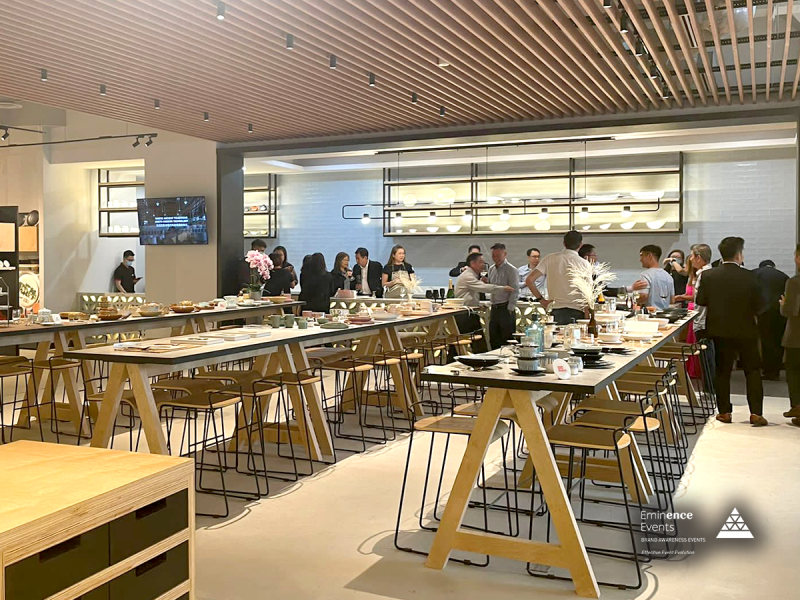Singapore, known for its dynamic business landscape and vibrant culture, is a prime destination for hosting corporate events. Whether it’s a conference, seminar, product launch, or team-building retreat, the city-state offers a plethora of venues, services, and amenities to make your event a resounding success. However, planning and executing corporate events in Singapore requires careful attention to detail and a thorough understanding of local customs and regulations. Here are some essential tips to ensure seamless planning and execution:
1. Start Early and Set Clear Objectives:
Begin planning well in advance to secure your preferred venue and vendors. Clearly define the purpose and objectives of your event to guide the planning process effectively. Whether it’s to launch a new product, foster networking opportunities, or celebrate achievements, having a clear goal will help in making informed decisions throughout the planning stages.
2. Choose the Right Venue:
Singapore boasts a wide range of venues suitable for various types of corporate events, from state-of-the-art convention centres to luxurious hotels and unique event spaces. Consider factors such as capacity, location, facilities, and ambiance when selecting a venue. Ensure that the chosen venue aligns with the tone and objectives of your event while providing adequate space for presentations, networking, and other activities.
3. Understand Local Regulations and Permits:
Familiarise yourself with Singapore’s regulations and requirements concerning events, permits, and licenses. Depending on the nature and scale of your event, you may need to obtain permits from relevant authorities such as the Singapore Tourism Board (STB) or the Urban Redevelopment Authority (URA). Ensure compliance with safety regulations, fire codes, and other legal requirements to avoid any last-minute issues.
4. Cater to Cultural Sensitivities:
Singapore is a multicultural society with diverse ethnicities and religions. Respect cultural sensitivities and preferences when planning your event, especially concerning food, dress codes, and scheduling. Be mindful of religious holidays and observances that may impact attendance or logistics. Providing options that cater to different dietary restrictions and preferences will enhance the inclusivity of your event.
5. Utilise Professional Event Services:
Consider engaging professional event planners or management companies with experience in organising corporate events in Singapore. These experts can provide invaluable assistance in venue selection, logistics, audiovisual setup, catering, entertainment, and onsite coordination. Outsourcing certain aspects of event management can relieve stress and ensure a smoother execution, allowing you to focus on the content and objectives of your event.
6. Harness Technology for Engagement:
Leverage technology to enhance engagement and interaction during your event. Utilise event management software for online registration, ticketing, and attendee management. Incorporate interactive elements such as live polling, Q&A sessions, and virtual networking platforms to keep participants engaged and facilitate meaningful interactions. Embrace digital solutions for presentations, signage, and communication to streamline operations and enhance the overall attendee experience.
7. Promote Sustainability Practices:
Embrace sustainable practices throughout the planning and execution of your event to minimise environmental impact and demonstrate corporate responsibility. Choose eco-friendly venues and suppliers, minimise waste generation through recycling and composting, and encourage participants to use digital materials instead of printed collateral. Incorporating sustainability initiatives not only aligns with global trends but also reflects positively on your organisation’s values.
8. Plan for Transportation and Accessibility:
Consider transportation and accessibility factors to ensure the convenience of attendees. Choose a venue with easy access to public transportation options and ample parking facilities. Provide clear directions and transportation options for out-of-town guests, including shuttle services or designated pick-up points. Make provisions for attendees with special needs to ensure inclusivity and accessibility.
7. Prepare for Contingencies:
Despite meticulous planning, unforeseen circumstances can arise during events. Have contingency plans in place for potential issues such as technical glitches, inclement weather, or unexpected changes in attendance. Maintain open communication channels with vendors, staff, and participants to address any challenges promptly and minimise disruptions to the event schedule.
8. Seek Feedback and Evaluate Success:
After the event concludes, seek feedback from participants, sponsors, and stakeholders to evaluate the success of your event and identify areas for improvement. Analyse key performance indicators such as attendance rates, participant satisfaction scores, and return on investment to measure the effectiveness of your event strategy. Use insights gained from feedback and evaluation to inform future event planning endeavours and refine your approach.
Conclusion:
By following these tips and guidelines, you can navigate the complexities of planning and executing corporate events in Singapore with confidence and ensure a memorable experience for all participants. From meticulous logistics to cultural considerations, each aspect plays a crucial role in creating a seamless and successful event that achieves its objectives and leaves a lasting impression on attendees.
Navigating Corporate Events in Singapore: Tips for Seamless Planning and Execution
XML link l All feed

